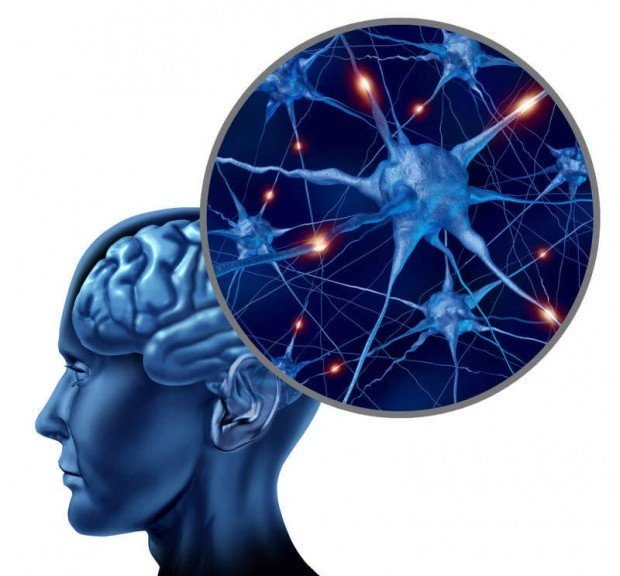Cognitive decline is a very common condition that occurs with aging due to a number of factors. Consequently, patients will gradually lose their intellectual skills, such as acquiring new knowledge, retaining information, staying focused, and reasoning logically. Longevity Live Paid Content.
A moderate level of cognitive impairment with aging is relatively common. However, a severe decline in cognitive abilities might be a sign of a more serious condition. Various factors can contribute to this condition, including severe illness, lifestyle choices, and physical injuries.
In this article, we will cover several aspects of cognitive decline and the role of Actovegin tablets in managing this condition.
Signs and symptoms of cognitive decline
Cognitive decline does not have a single look, as it differs significantly between individuals due to lifestyle choices, current medical conditions, and abilities. Nonetheless, researchers managed to pinpoint numerous factors that contribute to this condition.
Individuals facing mild cognitive impairment may show the following symptoms:
- Struggling to find appropriate words to express their thoughts
- Losing or misplacing belongings
- Forgetting about scheduled appointments
- Finding themselves overwhelmed by complicated tasks or projects
It’s important to distinguish between forgetting things and cognitive decline. Ordinary forgetfulness is not a sign of cognitive decline. Therefore, there is no need for unnecessary anxiety.
The primary causes of cognitive decline
Cognitive decline may be the result of various factors, including underlying health conditions. Examples include:
- High blood pressure
- Vascular disease
- Depression
- Chronic insomnia
- Diabetes
In other cases, neurological conditions, such as Alzheimer’s Disease or dementia, might be the root cause.
Genetic predisposition and family history also have a significant effect on the chances of experiencing cognitive decline with age. Researchers estimate that genetic factors may account for approximately 60% to 70% of the total cases of age-related cognitive decline.
When does cognitive decline start?
The onset of cognitive decline varies greatly and mainly depends on lifestyle habits that impact brain health as one ages.
A 2020 analysis included nearly 29,000 participants from the Health and Retirement Study. The authors discovered that women typically experience cognitive impairment first at around 73 years of age, while dementia sets in around 83 years. Men, on the other hand, began experiencing cognitive decline around 70 years, with dementia appearing around 79 years.
It’s crucial to note that not everyone experiencing cognitive decline will eventually develop dementia. The study further found that variables like race and education level influenced the onset age of cognitive decline.
Cognitive decline typically starts 3 to 6 years earlier among many Black and Latino individuals. Researchers believe this tendency may be explained by the unequal access to healthcare and the accumulated stress experienced over a lifetime.
On the other hand, individuals with higher education levels usually experience cognitive decline later, possibly due to:
- Being mentally active
- Maintaining social interactions
- Having more access to healthcare (ensuring early intervention for medical issues)

Lightspring/Shutterstock
Factors that exacerbate cognitive decline
Aside from genetics and family history, there are other elements that may accelerate or worsen cognitive decline. These include high blood pressure, stroke, smoking, high cholesterol levels, and hearing loss.
While some of these factors are beyond your control, others can be managed effectively. Therefore, it is essential to work with a healthcare team to formulate a health management plan.
Is it possible to prevent cognitive decline?
Some cases of age-related cognitive decline are due to genes. Therefore, you might not be able to alter these risk factors. However, there are numerous strategies you can adopt to nurture your brain and preserve your cognitive abilities.
Evidence-based measures include:
- Consuming a nutritious diet rich in leafy green vegetables (Mediterranean and DASH diets)
- Regular physical activity
- Building social connections
- Engaging the brain with activities, such as reading, games, and hobbies
- Protecting the brain from injury
- Moderating alcohol consumption
- Abstaining from tobacco products
A study conducted in 2022 proposed that taking a multivitamin daily might help delay cognitive decline. However, we need more research on this avenue before drawing any conclusions.
How Actovegin can help with age-related cognitive decline
Actovegin is highly known for its brain-boosting abilities. This drug is derived from calf blood, making it one of the richest sources of inositol phospho-oligosaccharides (IPOs). What makes IPOs unique is their ability to cross the blood-brain barrier.
When it comes to the effects of Actovegin in the prevention and management of cognitive decline, there is a lot of research in this field.
For example, one study examined the effectiveness of Actovegin in treating mild cognitive impairment that originated from strokes and aneurysms in thirty patients. The results demonstrated significant improvements in all cognitive measures, including:
- Enhanced mental processing speed
- Reduced bradyphrenia (i.e., slow processing of information)
- Diminished memory disorders
Other positive effects included improvements in asthenic and depressive symptoms. What’s more, researchers found that Actovegin does not cause any side effects, making it an ideal choice for elderly patients with early signs of cognitive decline.
Another 12-month double-blind, placebo-controlled study also investigated this matter. More specifically, the study assessed Actovegin’s impact on cognitive function in patients who had suffered an ischemic stroke.
The results indicated a significant improvement in cognitive outcomes for patients treated with Actovegin compared to a placebo. Once again, the safety of this drug appears to be sublime. All of this suggests that Actovegin is an effective treatment for poststroke cognitive impairment.
Takeaway message
Actovegin is a drug with a specific proclivity to the brain and cognitive function. The available evidence demonstrated that this drug could be extremely effective for early cases of cognitive decline. Additionally, the lack of serious side effects caused by Actovegin makes it an even more appealing therapeutic option.
We hope that this article manages to highlight the impressive benefits of Actovegin in mitigating the symptoms of cognitive decline.
Who is the author?

Zac Hyde
Zac Hyde is a certified physician (M.D.) who works online as a medical writer and course creator. He owns a Health & Wellness blog and has published numerous eBooks. Zac writes articles about medicine, fitness, and nutrition-related topics.
After more than a decade of experience in writing medical blog posts, Zac is highly qualified to cover all health-related topics in a simple yet informative way.





![women [longevity live]](https://longevitylive.com/wp-content/uploads/2020/01/photo-of-women-walking-down-the-street-1116984-100x100.jpg)









